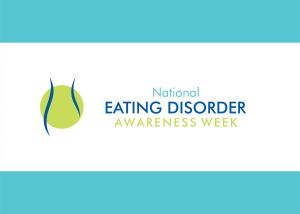How to Support a Child with an Eating Disorder
Author: Dr. Olivia Kleinman
It is important to help children and adolescents develop a positive body image and a healthy, balanced relationship with food. However, that is often more challenging than it sounds. In our society, there is a pressure of unrealistic standards that often impacts body image and self-esteem. From there, it can often be a slippery slope toward these standards having an impact on a child or teen’s eating habits and overall relationship with food. How do we support a child or teenager with an eating disorder?
Recognize that it is a mental health problem.
While it can feel hard to understand from the outside, a child or teen struggling with an eating disorder is struggling with a mental health problem, and not just nonsensical dieting. Eating disorders can have significant medical consequences and can have a serious impact on a person’s physical health. Children and teens suffering from an eating disorder might also be struggling with isolation, depression, anxiety, and low self-esteem. It is important for parents and caregivers to move forward from the idea that a child or teen struggling with an eating disorder is making rational decisions within their control. Your child or teen is in need of treatment and support, as well as your understanding and empathy.
Take it one step at a time and build on successes.
It is important to take it one step at a time when you are supporting your child with an eating disorder. For every decision you make or step you take in your child’s recovery, it is important to recognize that you are moving forward even when you encounter resistance. Start by having an open dialogue with your child or teen. While it can feel challenging, try to remain calm and non-judgmental. Stick to focusing on your concerns about their unhealthy behaviors and the harmful effects they are having on them instead of focusing on appearance or weight. Listen to them. There is the likelihood that your child or teen has conflicted feelings about getting better, and it is important to hold their feelings in mind and help them feel heard. You will need to be supportive and persistent throughout this process. Don’t wait to seek treatment for your child, and take the treatment recommendations from professionals one step at a time. Build on successes that you experience with your child as you navigate this process together.
Remove choices.
Your child’s distress at mealtime can feel terrible, but it is important to remember that you are not harming them. Not eating is harmful. It is very important to remove choices, especially at the start of recovery. Decision-making is hard when your child is struggling with an internal conflict or is being swayed by an “eating disorder voice.” They likely have part of them wishing they could eat and another part wishing that it wasn’t their decision in those moments. During mealtime, your child might feel obligated to choose the option that has fewer calories. If he or she doesn’t know, the decision-making process will likely be all the more distressing. It is important to give your child support and a strong voice against their internal conflict and/or eating disorder voice. If they have an eating disorder voice, which many do, you are helping to give them a weapon to use against it with your support, understanding, and decision-making. You are helping your child or teen find their own voice again.
Don’t expect perfection.
While it is important to be fully committed to feeding your child and teen as they recover from an eating disorder, it is normal for feeding to fail some of the time. In the early days of supporting your child through an eating disorder, it can feel impossible to get them to eat and/or eat in a balanced way. You are likely to encounter resistance in this process. While their behaviors can look like defiance, rudeness, or irrationality, it is important to recognize that the underlying emotion your child is feeling is fear. This will allow you to feel compassion for your child, even in moments of intense frustration or self-doubt. Try to focus on how to ease your child’s fear enough to manage the next step in the recovery and feeding process. You might even recognize parallels to your child’s feelings within your own challenges as the parent such as feeling fearful too. Don’t expect perfection from your child or yourself during this process.
Whether or not you are currently supporting your child through an eating disorder, it is important to be aware of some of the warning signs:
- Refusing family meals
- Skipping meals
- Persistent, negative comments about body image
- Irritability and sadness
- Withdrawal from family and friends especially around mealtime
- Any signs of extreme dieting, binging, or purging
Support is available if you are concerned that your child might be struggling with any of these warning signs. Do not hesitate to get your child or yourselves support and guidance to help navigate this treatment process, contact us today.
For more information about eating disorders and providing support, visit: https://www.nationaleatingdisorders.org/ .






